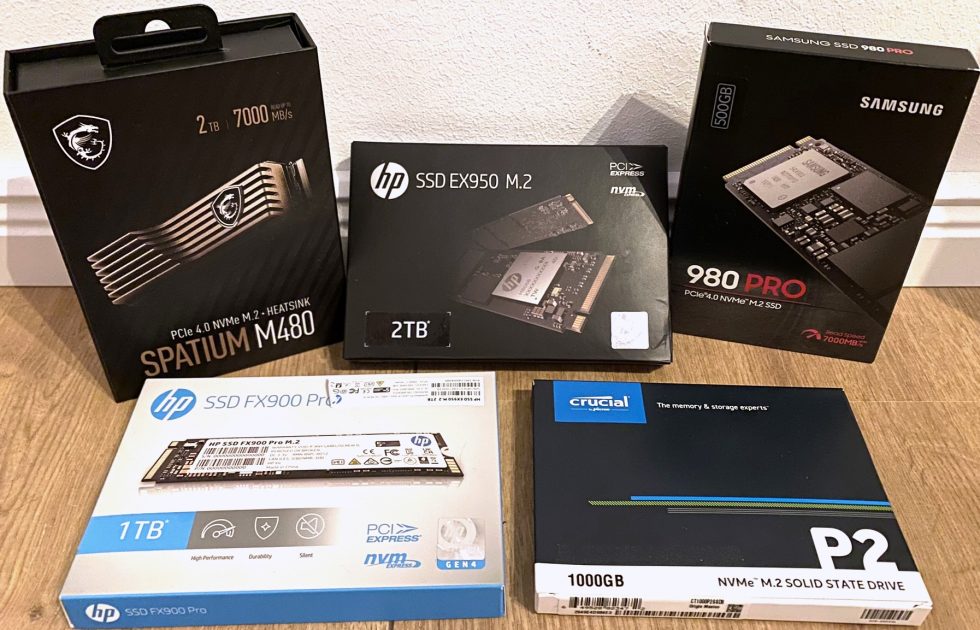Does it really always have to be the fastest data medium on paper and what do older SATA devices in the form of a 2.5″ SSD or a 3.5″ hard drive perform? Do we really need the latest product pushed on us by marketing, or can it be a few levels lower? You can argue about the sense and nonsense of the products, but there are still enough application scenarios where such record values are actually (almost) irrelevant. Effort and benefit versus the usual have-to-have factor – psychology is always on board and the wallet quietly cries its lament.
Deviating from the normal test system on a current Ryzen board (MSI MEG X670E Ace), Fritz Hunter was kind enough to raid his old stock and chase some of his finds through the benchmarks for you. That’s why it’s not a single test in the conventional sense, but a kind of showcase for the generations. Something like this has its very own charm, so I’ll simply leave out the technical details and specifications of the test subjects. If you want to, you can google it, but today it’s more about the principles.
You already know the test system from some tests, but for the sake of completeness I like to list it again in a table. With which it is also clear that I (Igor) am today quasi only the executor, while Fritz Hunter has kneaded the whole parts brave for us in his precious time.
| CPU | Intel Core i9-12900K |
| Mainboard | MSI MPG Z690 Carbon WiFi |
| RAM | 2x 16 GB Corsair Dominator 6000 MHz CL 30-36-36-76 |
| SSD 1 | Samsung 980 Pro 500 GB (System) |
| SSD 2 | MSI M480 2 TB |
| SSD 3 | MSI M390 1 TB |
| SSD 4 | HP FX900 Pro 1 TB |
| SSD 5 | HP EX950 2 TB |
| SSD 6 | Crucial P2 1 TB |
| SSD 7 | Samsung 840 Pro (S-ATA) 512 GB |
| HDD | Seagate BarraCuda 7200 rpm 2TB |
| CPU Cooler | Alphacool Eisbaer Aurora 360 |
| Power supply unit | Seasonic Prime Platinum 1300 Watt |
| GPUs | NVIDIA GeForce RTX 4090 |
| Sound | SoundblasterX AE-5 Plus |
| Keyboard | Sharkoon Purewriter RGB (Red Button) via USB @1000 Hz polling rate |
| Mouse | ASUS ROG Chakram X @1000 Hz polling rate (NVIDIA Reflex Latency Analyzer Support) |
| Monitor | ASUS ROG Swift PG279QM |
| Test Tools | AJA, SPECwpc, 3DMark |


































89 Antworten
Kommentar
Lade neue Kommentare
Urgestein
Urgestein
Urgestein
Mitglied
Mitglied
Urgestein
Mitglied
Urgestein
Moderator
Urgestein
Moderator
Moderator
Urgestein
Urgestein
Moderator
Moderator
Urgestein
Mitglied
Alle Kommentare lesen unter igor´sLAB Community →